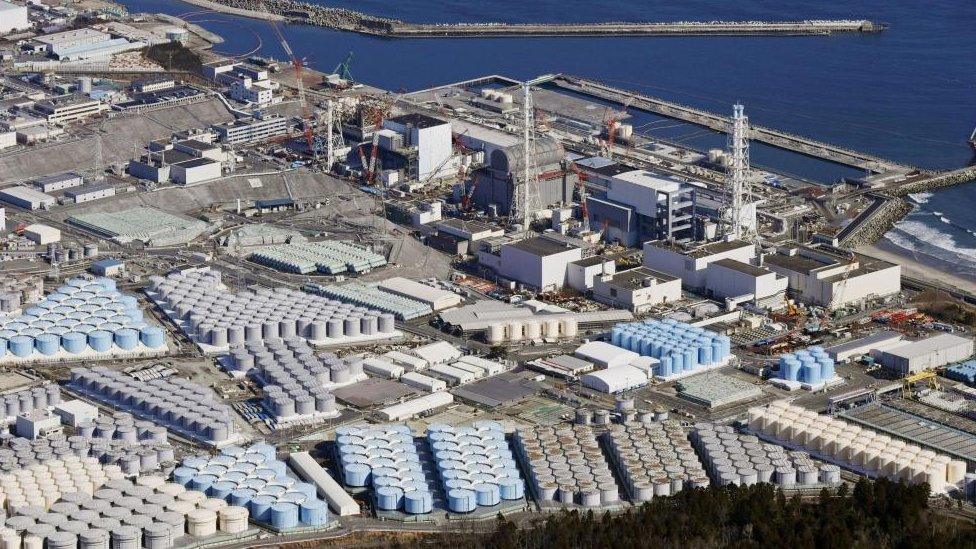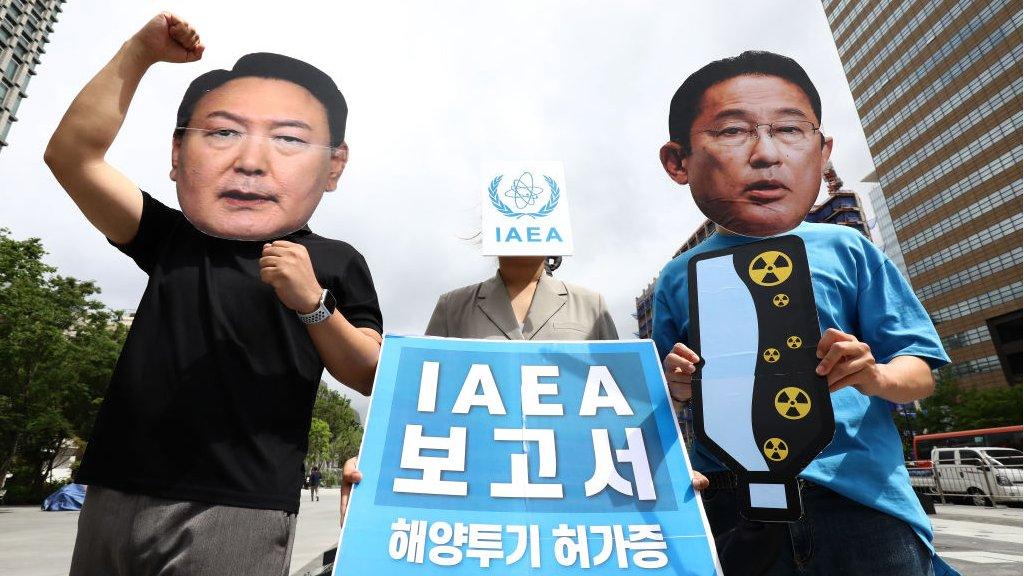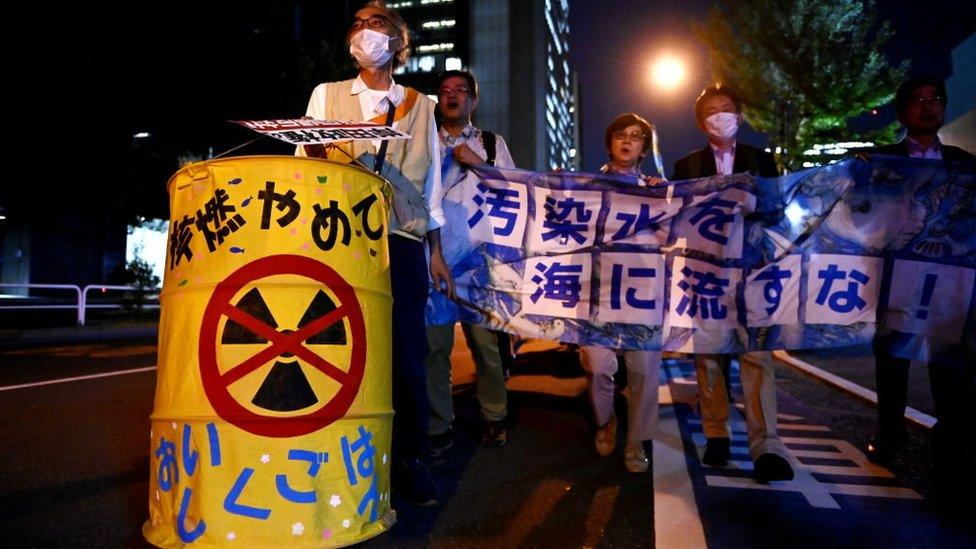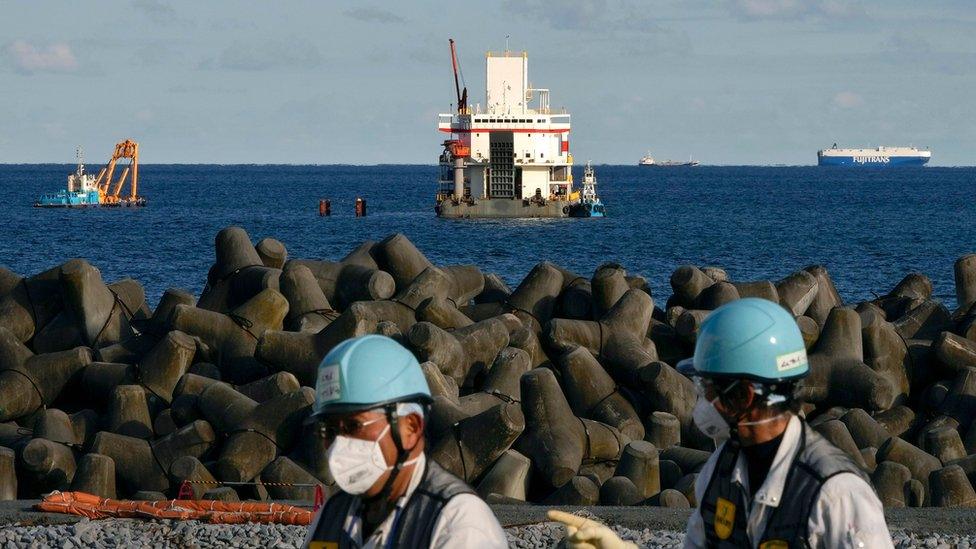Fukushima: China extends ban on some Japanese food over wastewater release plan
- Published

Fukushima nuclear plant in February 2021
China says it will maintain a ban on some Japanese food imports over the plan to release water from the wrecked Fukushima nuclear plant into the ocean.
China's customs administration said it would also implement radiation tests on food from other parts of the country.
South Korea is also maintaining a similar ban but says the proposed release meets international standards.
On Wednesday the UN's nuclear watchdog said it would have "negligible impact" on the environment.
On Friday Japan's nuclear regulator also gave its approval.
In 2011, a tsunami triggered by a magnitude 9.0 earthquake flooded three reactors of the Fukushima Daiichi Nuclear Power Plant. It is regarded as the world's worst nuclear disaster since Chernobyl.
More than 150,000 people were evacuated from an exclusion zone around the plant, which remains in place. Decommissioning of the plant has also started, but the process could take decades.
Meanwhile the equivalent of around 500 Olympic-sized swimming pools worth of water has amassed at the nuclear facility, according to Reuters news agency.
Storage space for the water is running out, but the plans initiated by the Japanese government and the facility's operator, Tepco, to release the water into the sea have encountered regional criticism - most harshly from China.
"China Customs will maintain a high level of vigilance," China's customs authority said.
Japan's foreign ministry said it was considering possible measures in response, according to an unnamed official who spoke to AFP news agency.
China has already strongly criticised the plan - accusing Japan of treating the ocean like its "private sewer."
It has also warned the UN's nuclear watchdog, the International Atomic Energy Agency (IAEA) against endorsing it. The agency released a report on Wednesday stating the plan would have a "negligible" impact on the environment.
Speaking in Tokyo on Friday, the head of the IAEA, Rafael Grossi, told Reuters he was "extremely confident" in his agency's assessment of Japan's proposal.
He added that his organisation did not take any sides and that its findings were based on scientific evidence.
South Korea, which had previously also criticised the plan, said it was maintaining its ban on imports of seafood from Fukushima and some other Japanese prefectures.
Local fishing communities in Japan have also expressed their concerns about the plan and its affects on their livelihoods.
Fukushima fishermen worried about nuclear water release plan
Related topics
- Published25 August 2023

- Published4 July 2023

- Published13 January 2023
